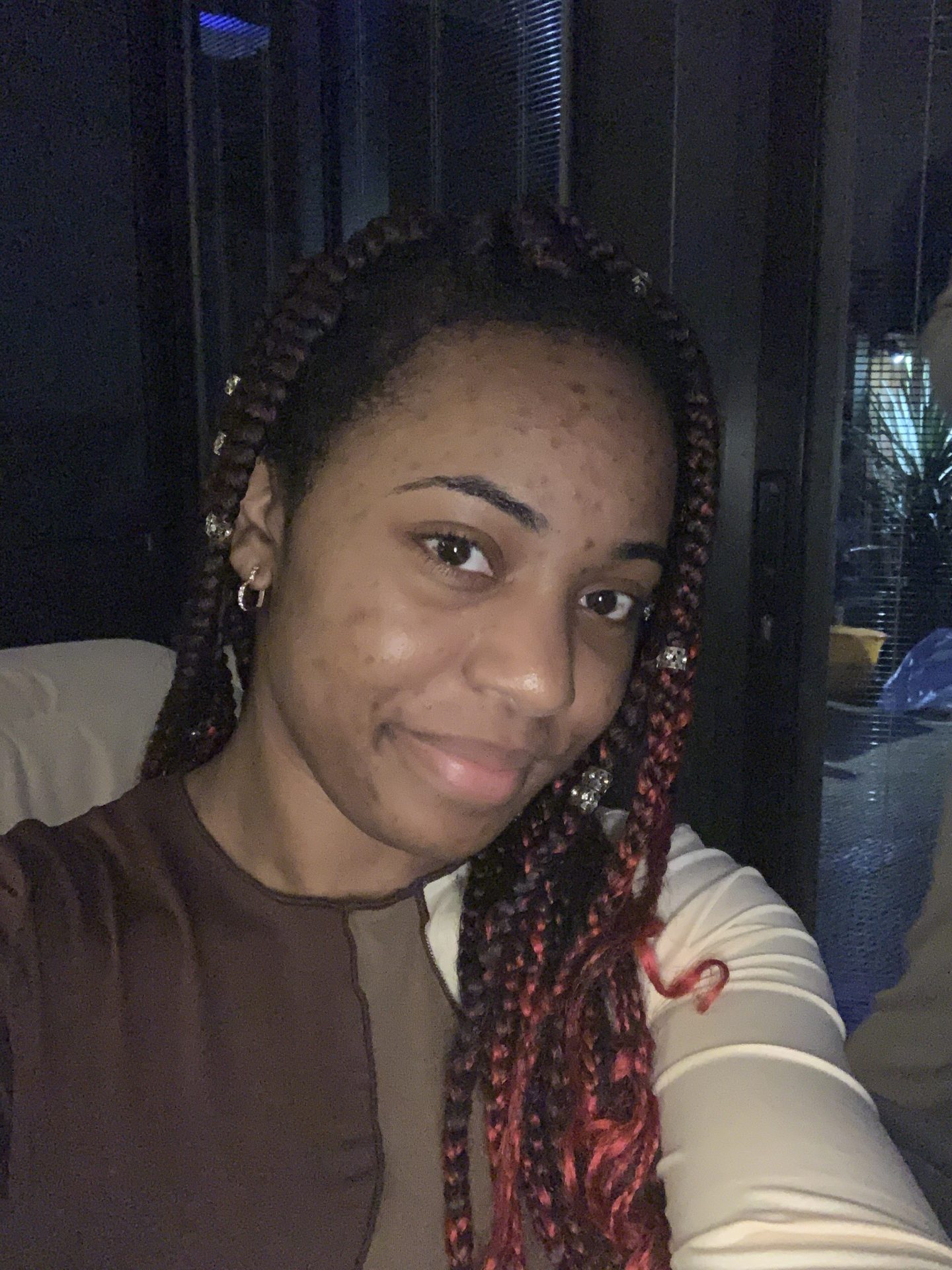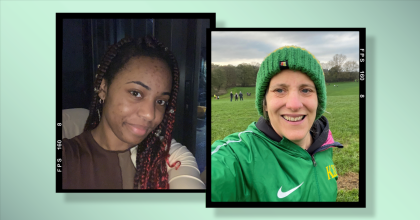New research from mental health charity Mind shows more than a third of UK adults never make time to talk about their mental health. Here’s why that’s a problem.
Talking about your mental health may not be the cure-all solution it’s sometimes made out to be, but it can certainly make a difference. Whether you speak to a friend, family member, therapist or complete stranger, having a chat about how you’re doing can have a transformative impact; not only does it give people the chance to admit they’re not OK, but also to ask for help.
Despite the proven benefits of opening up, many of us still shy away from speaking to others about how we’re feeling. In fact, according to a new poll of over 5,000 people by the mental health charity Mind, more than a third of UK adults never make time to speak about their mental health – a number equivalent of 19.6 million people aged 16 or over.
You may also like
Mental health: talking about how you’re feeling is an important first step – but what comes next?
At a time when the world feels like a scary and uncertain place and our mental health is suffering as a result (according to Mind’s survey, 8 in 10 people say their mental health has been affected by the cost of living crisis), it’s more important than ever that we use this Time To Talk Day (2 February) to highlight just how valuable talking about mental health can be.
So, to do just that, Stylist is spotlighting the stories of three women who have used talking as a tool to look after their mental health. Keep reading to check out their stories and to find out more about the benefits of opening up.
Morgan Sykes, 23, south east London

Morgan has lived experience of generalised anxiety disorder and depression.
“For years, I felt so alone – I didn’t know what I was going through. Growing up, I felt like an outcast and abnormal. So when I finally received a diagnosis last year of generalised anxiety disorder, I wanted to share my experiences to help and inspire others. It’s so important to talk about mental health because you never know who is struggling and needs some more positive energy to get through the next day.
“I speak about my personal experiences of anxiety, depression and loss on platforms like Instagram. It got to a point where I thought to myself, enough is enough now – I need to turn my challenges into a positive to help others and succeed in life. I’m so thankful that I took that step, and I’ve managed to make a positive impact. The reaction on Instagram has been very positive. I’ve been called courageous and a blessing. People have thanked me for sharing my story and showing my vulnerability. It’s great to know I’ve been able to help people in that way. That’s all I’ve ever wanted since I was a little girl – to make people happy.
“I speak to the Samaritans and my therapist openly about my mental health on a regular basis. I am never judged and there are times when I feel a lot of relief after speaking to someone. One of the barriers I face when it comes to talking is feeling like a burden. I worry about weighing people down with my problems, making them concerned or putting pressure on them. I tend to catastrophise a lot.
“Having structure and meeting people also really benefits my mental health long-term. Sometimes meeting people at networking events provides me with an opportunity to speak about what I do as an upcoming motivational speaker, which is all linked to mental health. I’m passionate about raising awareness – and I know it’s important to be open, even when it’s hard.
“I’m currently studying mental health and I’m looking forward to completing the qualification so I can hopefully educate others further.”
Sandeep Saib, 34, east London

Sandeep has lived experience of anorexia nervosa, body dysmorphic disorder (BDD) and obsessive-compulsive disorder (OCD).
“Talking is important because it allows us to express our thoughts and emotions. We talk about physical health, but mental health still isn’t talked about in the same light – probably because people can’t see it. And while I encourage everyone to talk about mental health on Time To Talk Day, and every other day of the year, we must also remember to actively listen. Listening is really powerful.
“My first conversation about mental health was with my mum and dad. They sat me down after noticing some worrying behaviours I had been presenting, and they told me, ‘Look, we’re worried about you.’ They suggested I should book a doctor’s appointment, which shocked me. I didn’t even know what mental health was until that point, but in that moment, it was as if the bubble I’d been living in had popped and they could see me for the first time. They helped me to see it was all going to be OK.
“I always try to find time and space in my day for mental health conversations. As I work full-time, I mostly do this in the workplace. It can be challenging to find a space to talk about mental health in the office because the day flies by and we’re all so busy getting our heads down in work that it’s hard to press pause and be real sometimes. But I find that arranging a coffee, a walk outside or going to lunch with colleagues is the best way for us to check in with each other. It helps to find a space like that where it’s easier to open up.
“With my family, checking in with them via WhatsApp is usually what works best. But we also make time to chat in person. Once a month we get together at a cafe after visiting the Gurdwara and have what we call a ‘trusted family circle chat’. We each share our positives and negatives of the last month, our true feelings and thoughts, and work through them together. It’s helped all of us to open up, not be ashamed, explore our feelings and help each other where we can.”
Katie Price, 47, Solihull

Katie has lived experience of depression and postnatal depression.
“Since having counselling, I’ve learnt how to manage my mental health through talking and exercise. I started running in 2016, which helps me with my mental health. I run with a great bunch of ladies some days and we support each other through our challenges. It’s a great space to talk. We talk about anything and everything, from menopause, family issues and mental health. Anything that might be bothering us. It’s just good to have someone to be able to talk to – someone you can trust.
“I work with parents with children who have disabilities, so I often talk about mental health in the workplace too. The parents talk about their children, but also their own needs and mental health.
“Working full-time can be a barrier to me finding time or energy to talk about mental health. I’m also doing a part-time counselling course, which can make it challenging for me to find time for myself. It’s only got easier since my daughter left home for uni. However, meeting more people in the workplace does mean I have more friends to speak to now.
“To mark Time To Talk Day, I’ve organised an event for my running club. We’ll talk about mental health and the groups will run a little slower to allow people to talk while running.”
Frame Of Mind is Stylist’s home for all things mental health and the mind. From expert advice on the small changes you can make to improve your wellbeing to first-person essays and features on topics ranging from autism to antidepressants, we’ll be exploring mental health in all its forms. You can check out the series home page to get started.
If you or someone you know is struggling with their mental health, you can find support and resources on the mental health charity Mind’s website and NHS Every Mind Matters or access the NHS’ list of mental health helplines and services.
If you are struggling with your mental health, you can also ask your GP for a referral to NHS Talking Therapies, or you can self-refer.
For confidential support, you can also call the Samaritans in the UK on 116 123 or email [email protected]. In a crisis, call 999.
Images: Getty; interviewees’ own
Source: Read Full Article
